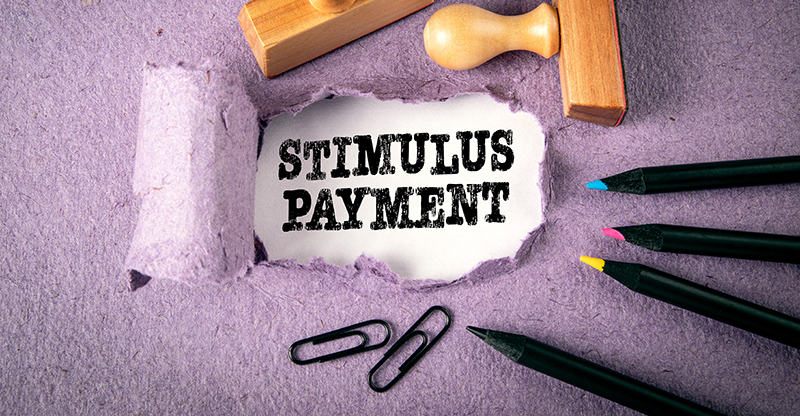Incarcerated and owe back taxes, can you get a stimulus?
March 10, 2021 by Jean Lee Scherkey, EA
I have Power of Attorney for someone who is incarcerated for tax fraud and owes the IRS close to a million dollars. Can he file for the stimulus?
-Sylvia
Dear Sylvia,
Thank you for submitting your question. There is little doubt that this question is on the minds of many people with family members or friends who are currently incarcerated. Many necessities that most folks take for granted, such as shampoo, toothpaste, antacids, supplemental food, analgesics, socks, and undergarments are in short supply in the penal system. Given the severe economic downturn from the COVID-19 pandemic, family and friends have been unable to deposit money into their incarcerated loved one’s prisoner trust fund to buy essentials. Due to the rampant unemployment, underemployment, and rising cost of food and living expenses in 2020, Congress passed economic relief packages. Included in these packages were two Economic Impact Payments (EIP). The stimulus money certainly would go a long way to help incarcerated persons purchase supplies in the prison commissary.
Like a good corn maze, tax laws have twists and turns. However, unlike the excitement of mastering a well-crafted corn maze, trying to understand the tax rules surrounding the Economic Impact Payments can often lead to frustrating “dead ends.” Qualified persons who file their taxes using the “Single” filing status could receive up to $1,800 ($1,200 for the first round of payments and $600 for the second round) of stimulus payments. Generally, as long as a person is a U.S. citizen or U.S. resident alien, has a valid Social Security number, and is not claimed as a dependent on someone else’s return, they will qualify to receive the stimulus payments. This includes incarcerated persons. If an individual’s 2020 adjusted gross income (gross income minus certain expenses) was $75,000 or more, the amount of stimulus payment a person could receive was reduced. For individual taxpayers, stimulus payments were completely phased-out when their adjusted gross income reached $99,000.
The EIP payments were considered an “advance” to the 2020 Recovery Rebate Credit that can be claimed on a taxpayer’s 2020 Form 1040. To get the stimulus payments into the taxpayers’ hands as quickly as possible, the IRS distributed the EIP payments based on the information taxpayers reported on their 2018 and 2019 returns. If a person qualified for the stimulus payments but did not have a filing requirement in 2018 or 2019, the IRS had a page on their website where qualified persons with no filing requirement could request to receive the Economic Income Payments. Those who qualified but did not receive one or both of the Economic Impact Payments during 2020 may now file a 2020 income tax return to claim the Recovery Rebate Credit, even if they have no reportable income.
The Economic Impact Payments received during 2020 were not applied to past-due federal or state tax liabilities. However, the money received by claiming the Recovery Rebate Credit on a 2020 Form 1040 can be applied to delinquent tax liabilities the taxpayer owes to the IRS or state tax agency. So, unfortunately, for any person who files their 2020 individual income tax return and qualifies for the Recovery Rebate Credit, the credit funds will be applied first to any back taxes due. Any of the credit that remains after the delinquent taxes are paid the taxpayer should receive (provided they do not owe back child support). There is some consolation as the amount of the credit applied to the taxpayer’s liability will reduce the total tax due along with penalties and interest. When difficult situations seem impossible, sometimes these “small wins” can make a difference and bring some hope. Congress is currently voting on the American Rescue Plan Act, which contains a provision for a third round of Economic Impact Payments. Until the Act is signed into law by President Biden, we do not know the final details of how this third round of payments will be administered and who will qualify. It is fairly certain any advance payments will be distributed by the IRS. Incarcerated individuals might qualify again for the third round of stimulus payments, and it might be possible that any advance payments will not be offset to pay prior tax liabilities. You may want to keep a close watch on this bill and the IRS’s Get Coronavirus Tax Relief webpage for further information.
Wishing you hope for the future and many happy returns,
Jean





